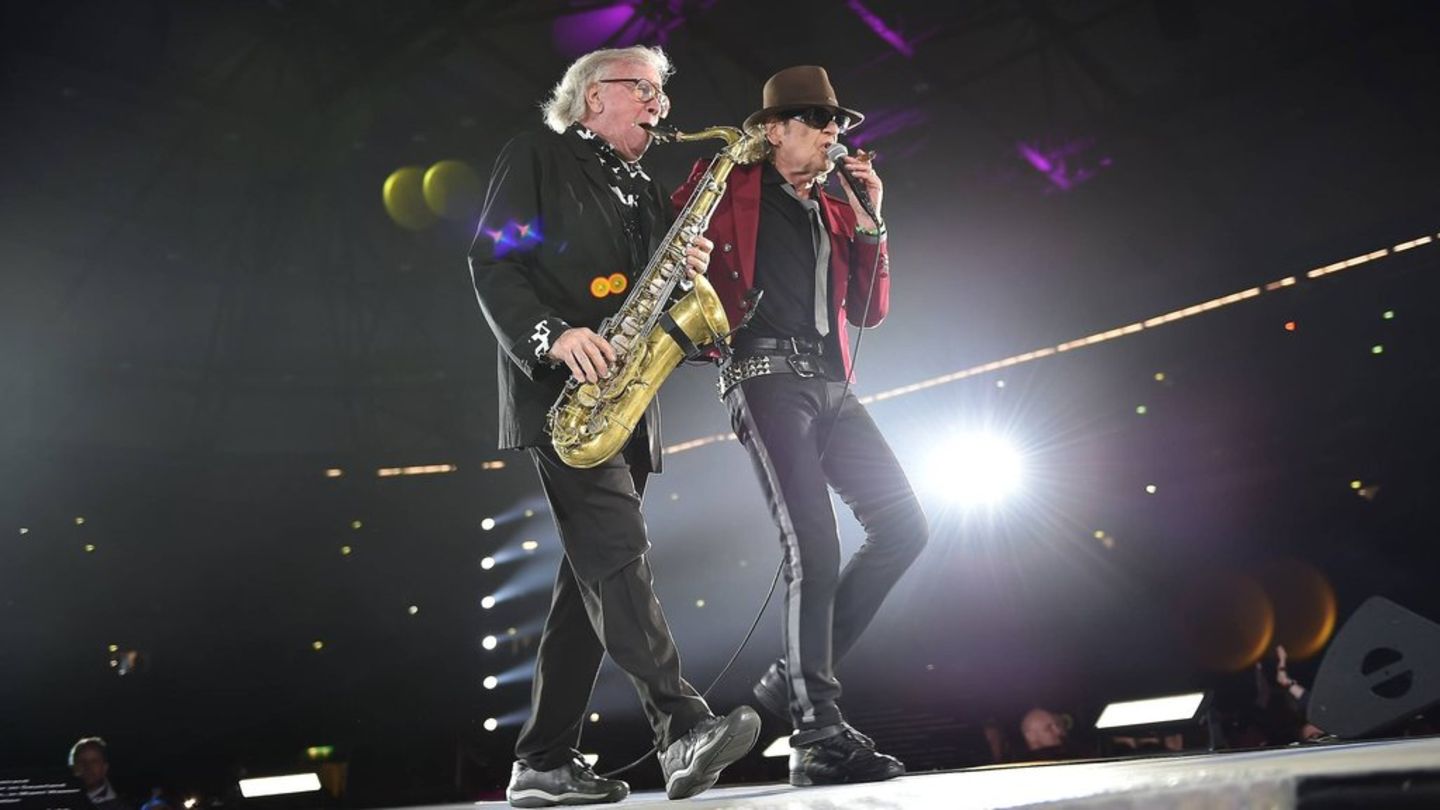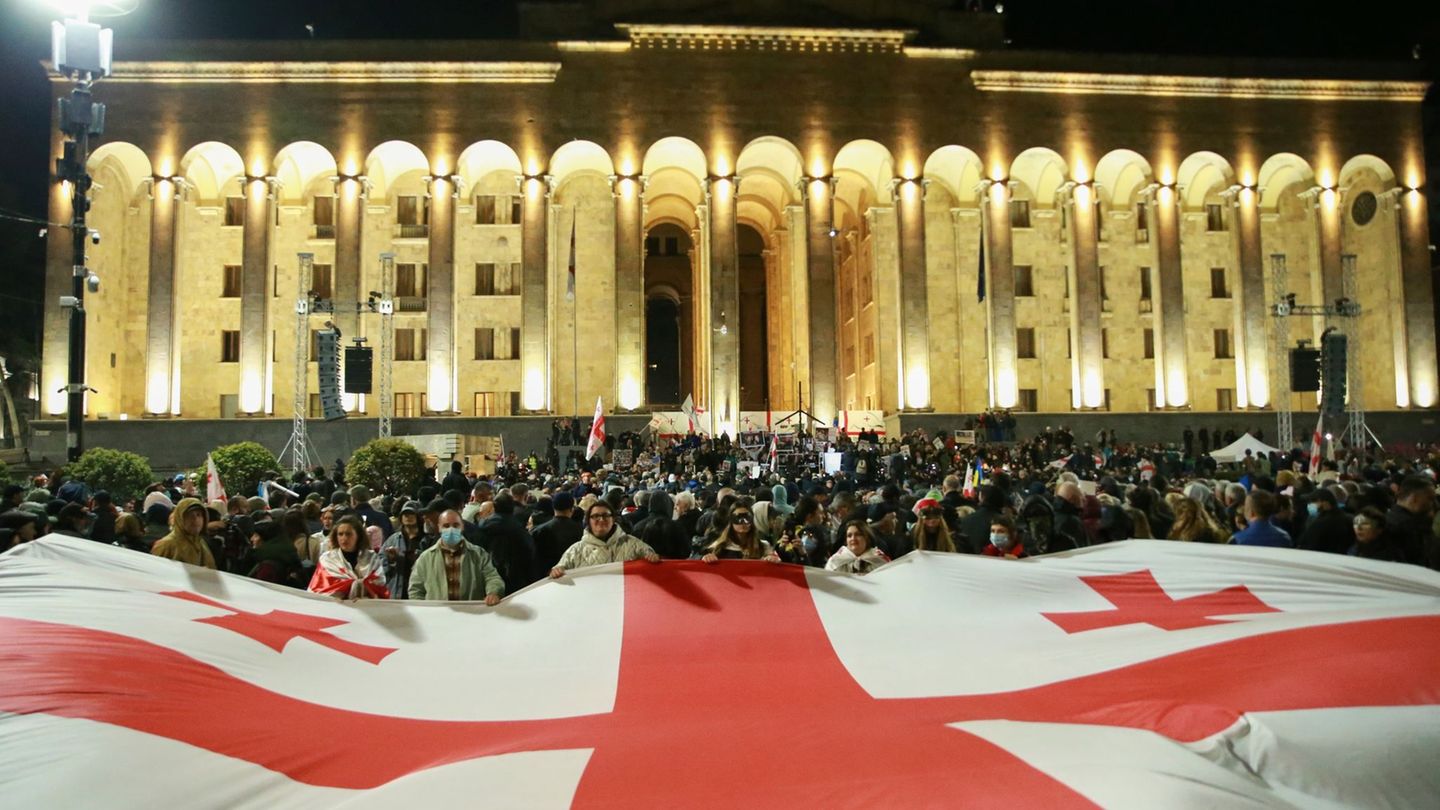The order books are full – but disrupted supply chains as a result of the pandemic and the Ukraine war are slowing down companies, according to the industry association. What consequences does that have.
German industry with millions of employees sees itself increasingly burdened by the consequences of the Russian war of aggression in Ukraine and the corona pandemic.
Mainly due to massive problems with raw material deliveries, the Federation of German Industries (BDI) has drastically lowered its economic forecast for this year.
The industry only expects growth in economic output in Germany of around 1.5 percent for this year, as the BDI announced in Berlin on Industry Day. At the beginning of the year, before the start of the Ukraine war, he still assumed an increase of around 3.5 percent.
War has exposed Germany’s “Achilles’ heel”.
The company’s order backlog is at a record high. Due to delivery bottlenecks, however, production is sometimes significantly affected, according to the BDI. The association also referred to congestion on container ships, a consequence of corona lockdowns in China. With its forecast, the BDI is more pessimistic than, for example, the Munich Ifo Institute, which had forecast economic growth of 2.5 percent. The federal government expects an increase of 2.2 percent, but this forecast dates from the end of April.
BDI President Siegfried Russwurm said the war had uncovered Germany’s “Achilles heel” as an industrial country: security of supply for energy, raw materials and basic technologies.
Germany is still dependent on Russian gas, but also other commodities. Russia had cut gas supplies through the Nord Stream pipeline in the Baltic Sea. Economics Minister Robert Habeck (Greens) spoke of an “economic attack” by Russian President Vladimir Putin on Industry Day.
The throttling shows once again the vulnerability of the German economy. “From today’s perspective, accepting massive dependencies as the price for cost advantages and economies of scale was just as wrong as our country forgoing sufficient investments in its own defense capabilities,” said Russwurm. “We skipped the fire brigade because we considered the risk of fire to be negligible. Now it’s on fire.”
It is now important to avoid one-sided dependencies. Russwurm made it clear that this also applies to China. In the case of raw materials, there must be a much broader diversification of sources of supply – i.e. broader supply chains. And: Development and production skills such as semiconductor technology in Europe would have to be expanded.
But are the prospects really bleak?
There is no reason for an “economic black painting” in time for the start of the collective bargaining round, said Jörg Hofmann, first chairman of the IG Metall trade union, the German Press Agency. “The companies are doing well and they are positive about the future with regard to the order and earnings situation. In contrast to their employees, companies can pass on higher prices.” Should something seriously change in the realities for the negative, IG Metall will remain a “reliable and responsible” collective bargaining partner.
Only on Monday did the IG Metall board decide to demand 7 to 8 percent more money for the approximately 3.9 million employees in the German metal and electrical industry in view of the record-breaking inflation.
“With their purchasing policy in recent years, companies have risked fragile supply chains for every last cent saved,” said Hofmann. “It’s taking revenge and is now causing many CEOs to think: geopolitical risks must also be taken into account in the supplier network.” For years, IG Metall has been demanding that future technologies must be kept in Europe.
At Industry Day, there was a lot of talk about innovations – as a prerequisite for growth. Russwurm called on politicians to switch on the “innovation turbo” and improve the framework conditions. However, investments are stuck in a “queuing pattern” due to uncertain economic prospects and increased uncertainty due to the war.
“Gas disruption would have catastrophic effects”
The BDI does not expect the economy to recover in the sense of a return to the level before the corona pandemic until the end of the year at the earliest – provided that Russian gas continues to reach Western Europe. “An interruption would have catastrophic effects on the manufacturing industry and would inevitably send our economy into recession,” said Russwurm.
Habeck had presented a package of measures to reduce gas consumption in industry. This also includes turning more climate-damaging coal into electricity again. This is “very bad news,” said Habeck. However, the measure is necessary to fill up the gas storage tanks. Germany cannot go into the winter with half-full storage facilities. If Russia then turns off the gas tap, there will be talk of a severe economic crisis that will hit Germany.
In his speech to industry, Chancellor Olaf Scholz (SPD) spoke of major challenges and promoted his announced “concerted action” with employer and employee representatives. A “permanent inflationary spiral” in Germany must be prevented.
Otherwise, Scholz praised himself. The new federal government had “rolled up its sleeves”. He recalled promises he had made a year ago at Industry Day – when he was still an SPD candidate for chancellor. They were complied with. Scholz mentioned a determined expansion of renewable energies or the abolition of the EEG levy on the electricity bill. But Scholz did not mention one thing: a year ago he had stated that his goal was to lower the price of industrial electricity.
Source: Stern
Jane Stock is a technology author, who has written for 24 Hours World. She writes about the latest in technology news and trends, and is always on the lookout for new and innovative ways to improve his audience’s experience.




